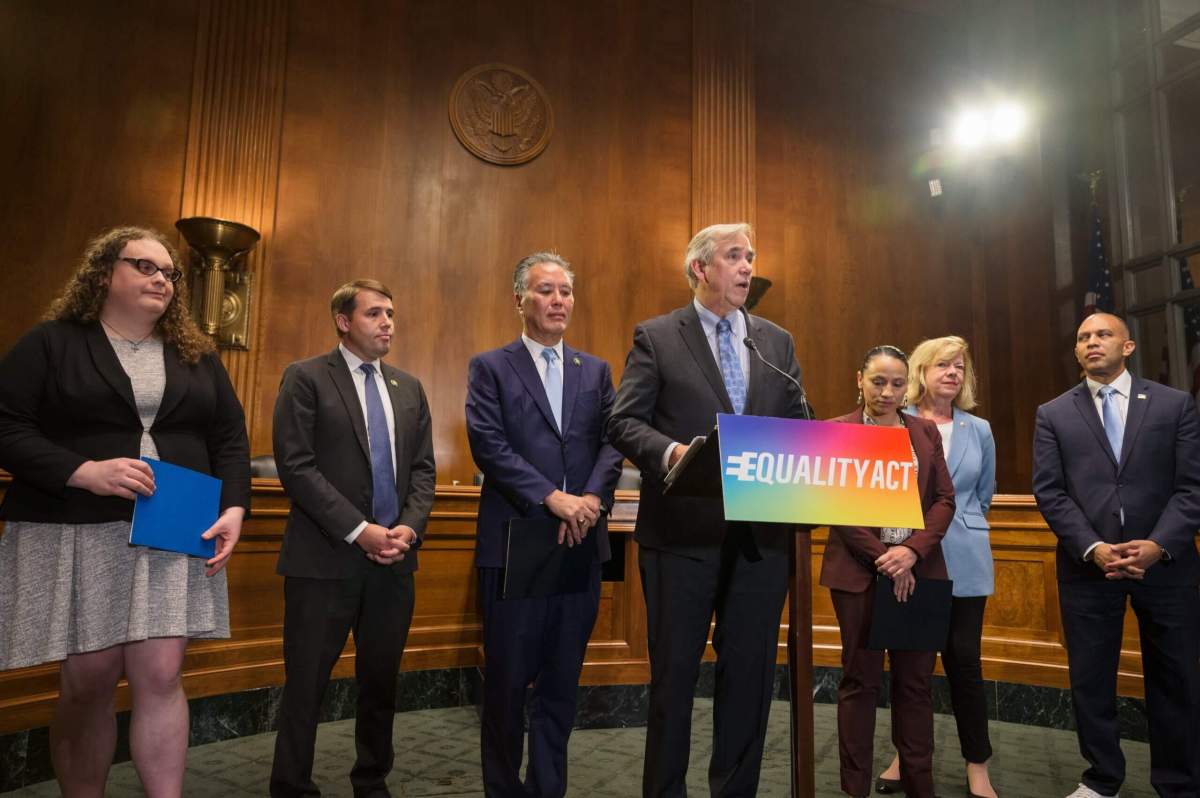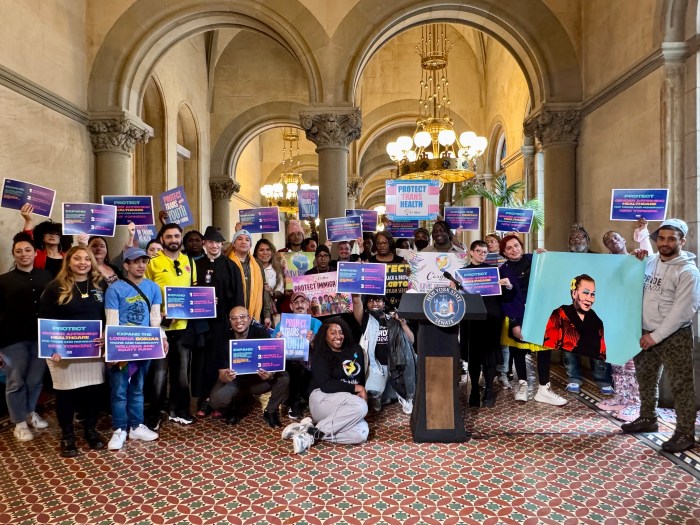Members of both houses of Congress reintroduced the Equality Act on June 21, representing the latest effort to advance a long-stalled comprehensive LGBTQ non-discrimination bill.
The bill most recently cleared the Democratic-controlled lower chamber in 2021, but it now faces dim prospects in the GOP-led House. The Equality Act would build on the Supreme Court’s 2020 ruling in Bostock v. Clayton County, which encompassed three cases pertaining to employment discrimination and established that Title VII of the 1964 Civil Rights Act applies to LGBTQ workers. The Equality Act would also bolster protections across housing, public accommodations, jury service, access to credit, federal funding, and more.
Members of the House and Senate, joined by advocates from leading LGBTQ organizations, held a June 21 press conference to announce the renewed push behind the bill.
Senator Jeff Merkley of Oregon is carrying the bill in the upper chamber, while out gay Congressmember Mark Takano is leading the effort in the House. Other out lawmakers are also supporting the bill, including Senators Tammy Baldwin of Wisconsin and Kyrsten Sinema of Arizona as well as Congressmembers Ritchie Torres of the Bronx, Sharice Davids of Kansas, Angie Craig of Minnesota, Chris Pappas of New Hampshire, Becca Balint of Vermont, Robert Garcia of California, and Eric Sorensen of Illinois.
Every House Democrat signed on to the Equality Act, which attracted just three GOP co-sponsors in 2021 — down from the eight Republicans who backed it in 2019. There are no GOP co-sponsors this time. Takano told the Washington Blade — an LGBTQ newspaper — that he plans to move ahead without any compromises to attract votes from Republicans.
In a written statement, Takano said the Equality Act would provide a “long-overdue guarantee to all members of our community that we, too, benefit from the civil rights protections and the full promise of American democracy.”
“The promise of democracy means a great deal to me personally because I have felt the sting of its denial,” Takano said. “As the first openly gay person of color to serve in Congress, I am acutely aware of the impacts lawful discrimination has on our marginalized communities in the United States, and the LGBTQI+ community have been subject to discrimination, violence, and the denial of their full personhood under the law for far too long.”
Torres said he is particularly proud to co-sponsor the bill at a time when the LGBTQ community is under attack across the country.
“In America, no one should be denied service at a restaurant, kicked out of a store, or refused service by a federally-funded program simply because of who they love or how they identify,” Torres said in a written statement. “Yet, millions of Americans, particularly in the LGBTQI+ community, still lack these fundamental legal protections and full equality under the law.”
Senate Majority Leader Chuck Schumer of New York said during the press conference that the Equality Act would be transformational for new generations.
“It is hard to believe it is not illegal to discriminate against LGBTQ+ people,” Schumer said. “It’s incredible. Marriage, thank god — but there’s employment and healthcare and housing, and it’s allowed… We must pass the Equality Act.”
In January of last year — before lawmakers directed their efforts towards passing a bill to protect marriage equality — Schumer delivered remarks at the LGBT Community Center in Manhattan, where he said he was “committing to passing federal legislation to update the Civil Rights Act of 1964 to include protections for all LGBTQ+ Americans.”


































